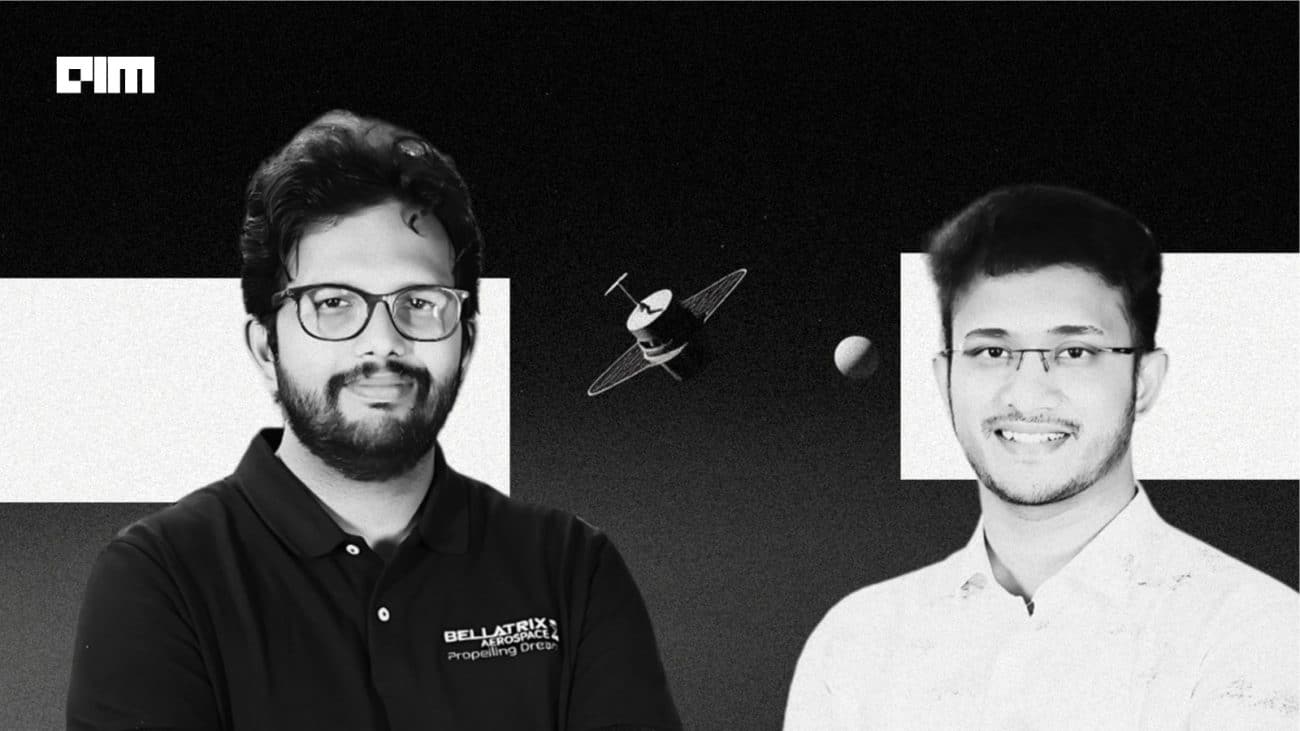The Indian space sector, once dominated by government-led initiatives, is seeing a surge in private players, opening up career trajectories that didn’t exist. Along with that, the decade-old norm of space engineers studying in India, gaining experience at ISRO, and then moving abroad for better opportunities is also fading away.
Instead, more Indian engineers are choosing to stay and build in India.
One of the catalysts for this shift has been India’s evolving space policy. “If you recall, in 2020, Nirmala Sitharaman announced approximately ₹20 lakh crore as part of the COVID package. A portion of that was dedicated to opening up new sectors for increased employment and investments—space was one of them,” said Yashas Karanam, co-founder and COO of Bellatrix Aerospace, in an exclusive interaction with AIM.
The announcement triggered confidence, leading to a wave of private space ventures, which in turn created jobs and opportunities that could compete with global offers.
Giving Engineers a Reason to Stay
India boasts over 190 space startups, a significant jump from just a handful in 2015. Karanam said that companies are not only building satellite technologies but also innovating in propulsion, launch systems, and AI-driven space navigation.
“In 2012, there was probably one company. In 2015, there were three. By 2017-18, it was up to 10. But after 2019-2020, the acceleration has been significant,” said Karanam.
The investments tell the same story: Indian private space startups have collectively raised over $350 million in funding in the past five years, demonstrating both investor confidence and a growing market.
This expansion is keeping engineers engaged in the country. “Now the opportunities are getting better here in India,” Karanam explained. “There are really exciting challenges to solve, and in terms of the trade-off, people went abroad because of better projects and financial incentives. But if you are paid well here, you could visit those countries while still building in India.”
In terms of talent, Karanam believes India has the right set of people. “I feel we are really good with what it takes to build a space company or space products because the engineers we have got have been really good. A lot of times, training or onboarding onto particular technologies would be required, but everybody is a quick learner as far as we have seen,” he said.
ISRO to Private Startups
Karanam observes an emerging trend within this space boom, which is the migration of former ISRO scientists to the private sector. Unlike earlier, where ISRO was seen as the only credible player, today’s engineers, many of who have worked on India’s high-profile missions, are stepping out to start their own companies.
“We have seen more people quitting their ISRO jobs and starting up on their own because they now know that the government is supporting this sector,” Karanam said. “India also realised that despite being one of the top five global spacefaring nations, we had less than 2% of the global commercial market share. That was because only ISRO was doing it.”
This realisation has fueled a policy shift that encourages private participation, resulting in companies securing contracts directly from ISRO and IN-SPACe (India’s nodal space authorisation body). The industry, once restricted to working under ISRO’s guidance, is now developing independent solutions for both domestic and international clients.
Bengaluru-based aerospace manufacturer Bellatrix Aerospace, which specialises in developing in-space propulsion systems and small satellite manufacturing, was founded in 2015 by Rohan M Ganapathy and Karanam. Since its inception, Bellatrix has raised a total of $11.3 million over four funding rounds.
Some of its notable investors include Inflexor, Pavestone, StartupXseed, GrowX, BASF, and others. Bollywood actress Deepika Padukone has also backed Bellatrix.
This Indian private space startup has developed two innovative satellite propulsion systems: a water-based Microwave Plasma Thruster and India’s first private Hall Effect Thruster, positioning the country as a leader in innovative propulsion technology.
‘Make in India’ for Space Hardware
Despite the enthusiasm, India’s space startups face a significant hurdle: building hardware at scale. While software-based AI and deep-tech companies can scale quickly with limited capital, space hardware requires heavy upfront investment, regulatory approvals, and access to cutting-edge materials.
Karanam elaborated on the challenges of building space components domestically. “If I were to build a propulsion system, I could buy a valve from a company that makes valves, buy propellant from a propellant manufacturer, and buy a catalyst from Shell or SABIC.
“But if all my suppliers are outside India, and I have to import everything, i.e. paying space shipping and customs duty, it does not make sense in the long term,” he said.
As a result, companies are increasingly choosing to manufacture components in-house. “We were blessed with a really capable team, and we had several retired ISRO scientists advising us. So, we took the bold decision to build even materials in-house,” Karanam added.
While building space hardware is a challenge, funding for hardware development is a major roadblock. Most investors, accustomed to rapid returns from SaaS and consumer-tech startups, hesitate to back capital-intensive deep-tech ventures.
“There is a funny saying: ‘The space industry is a sinkhole for money.’ The more you deploy, the more it goes into capital and R&D,” Karanam said, reflecting on investor scepticism. Unlike software, which can show quick user growth and revenues, hardware requires patience, long development cycles, and extensive testing.






























